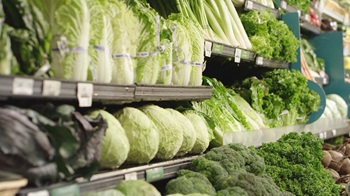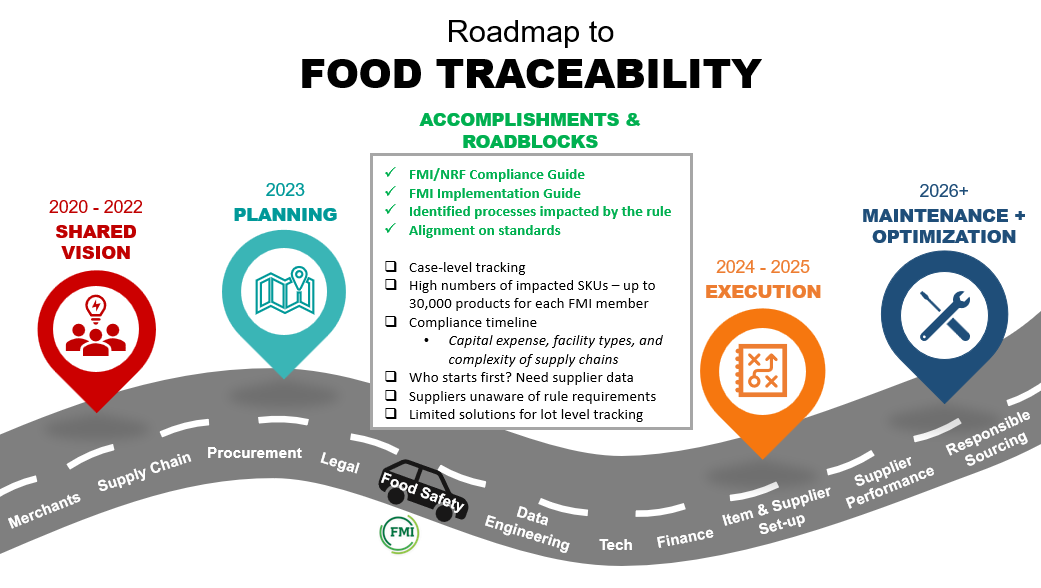By Gigi Vita, Chief Food Safety Assessment Officer & Senior Vice President, SQFI
 Food safety holds a critical role in a mutually successful buyer/seller partnership. Securing consumer confidence and loyalty are foundational pillars for retailers as they assess supply chain practices and strategies to enhance transparency and traceability. Therefore, there has never been a more critical time to emphasize the value of third-party supplier audits, certifications and the role they can play in advancing food safety, protecting the retail brand and maintaining consumer trust.
Food safety holds a critical role in a mutually successful buyer/seller partnership. Securing consumer confidence and loyalty are foundational pillars for retailers as they assess supply chain practices and strategies to enhance transparency and traceability. Therefore, there has never been a more critical time to emphasize the value of third-party supplier audits, certifications and the role they can play in advancing food safety, protecting the retail brand and maintaining consumer trust.
SQFI, a division of FMI, has helped countless food suppliers of all sizes establish a food safety management program and has assisted many others seeking to enhance their existing programs through its Fundamentals Program for Food Manufacturing and the Fundamentals Program for Primary Production. Each program provides both basic and intermediate levels and provides a step-by-step approach to improve food safety management.
There are several converging factors sparking the renewed interest by retailers to strengthen the food safety requirements for their suppliers. Primarily, these factors stem from changing consumer food preferences and food safety.
Changing consumer food preferences has led to an emergence of new and innovative food products, an increased demand for information surrounding the origins of food (e.g., ethically sourced) and an expansion of international flavors and cuisine. The shift in consumer preference has given rise to an expanded inventory and more product offerings leading to more suppliers from around the world who are entering the market—many of whom lack familiarity with requirements to meet U.S. food safety standards.
More product offerings and new suppliers may expose retailers to increased risks. New supplier onboarding programs are critical to mitigating these risks. Third-party certifications are vital to a successful onboarding process by providing retailers with the necessary quality and safety assurances for manufacturing, growing, and harvesting processes.
In addition to SQFI’s Food Safety management program, suppliers have the opportunity to leverage ReposiTrak’s Compliance Management System to collect and manage all required vendor documents, including a current directory of approved vendors, third-party audits, and food safety plans, as well as other vital documents like signed vendor agreements and certificates of liability insurance. Derek Hannum, senior vice president at ReposiTrak, affirms the rise of international suppliers presently in the U.S. food supply chain, which now includes products and ingredients hailing from more than 100 countries.
With a new year comes new priorities and expectations. On May 24, 2021, SQF Edition 9 will be implemented to further advance the food industry’s commitment to quality and safety. While the food industry’s priorities may shift to meet the ever-changing consumer, when it comes to food safety, the food industry’s priorities remain unchanged – provide consumers around the world with safe, quality food.
With this in mind, we encourage you to watch Frank Schreurs, SQFI technical team member, who recently provided a keynote presentation in a complimentary webinar hosted by ReposiTrak where he discussed critical changes to SQF standards for 2021 implementation. Click here to view the webinar recording.
For more information on SQF Edition 9 implementation, please visit https://www.sqfi.com/resource-center/sqf-code-edition-9-downloads/


 Industry Topics address your specific area of expertise with resources, reports, events and more.
Industry Topics address your specific area of expertise with resources, reports, events and more.
 Our Research covers consumer behavior and retail operation benchmarks so you can make informed business decisions.
Our Research covers consumer behavior and retail operation benchmarks so you can make informed business decisions.
 Events and Education including online and in-person help you advance your food retail career.
Events and Education including online and in-person help you advance your food retail career.
 Food Safety training, resources and guidance that help you create a company food safety culture.
Food Safety training, resources and guidance that help you create a company food safety culture.
 Government Affairs work — federal and state — on the latest food industry policy, regulatory and legislative issues.
Government Affairs work — federal and state — on the latest food industry policy, regulatory and legislative issues.
 Get Involved. From industry awards to newsletters and committees, these resources help you take advantage of your membership.
Get Involved. From industry awards to newsletters and committees, these resources help you take advantage of your membership.
 Best practices, guidance documents, infographics, signage and more for the food industry on the COVID-19 pandemic.
Best practices, guidance documents, infographics, signage and more for the food industry on the COVID-19 pandemic.
